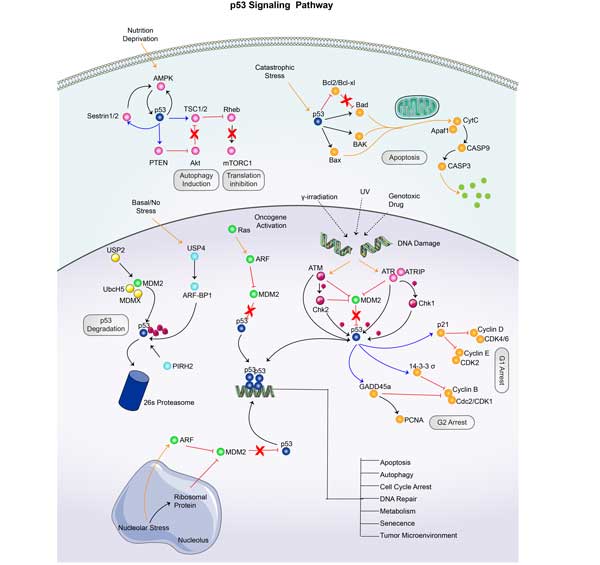ARF6
-
Official Full Name
ADP-ribosylation factor 6 -
Overview
ADP-ribosylation factor (Arf) proteins are low molecular weight GTP binding proteins that belong to the Ras GTPase superfamily. Arf proteins are grouped into three distinct classes based on amino acid sequence and structural similarity, with Arf6 as the s -
Synonyms
ARF6;ADP-ribosylation factor 6;DKFZp564M0264
Recombinant Proteins
- Human
- Mouse
- Chicken
- Rhesus macaque
- Rat
- E.coli
- Mammalian Cells
- E.Coli/Yeast
- Wheat Germ
- HEK293
- HeLa
- In Vitro Cell Free System
- His
- GST
- Non
- Avi
- Fc
- Flag
- SUMO
- DDK
- Myc
Involved Pathway
ARF6 involved in several pathways and played different roles in them. We selected most pathways ARF6 participated on our site, such as Ras signaling pathway,Phospholipase D signaling pathway,Endocytosis, which may be useful for your reference. Also, other proteins which involved in the same pathway with ARF6 were listed below. Creative BioMart supplied nearly all the proteins listed, you can search them on our site.
| Pathway Name | Pathway Related Protein |
|---|---|
| Phospholipase D signaling pathway | PDGFB,RAF1,PLA2G4D,PLCB1,GAB1,LPAR4,KITLG,PLA2G4F,Adcy4,PIK3CG |
| Endocytosis | HSP70L,HRAS,PIP5K1BB,RHOAD,CBL,EPN2,RAB11FIP1,ARF5,ASAP2B,RHOAB |
| Fc gamma R-mediated phagocytosis | PRKCG,VAV2,RAC1,SPHK1,PPAP2B,GSN,PAK1,ASAP3,RAC2,PIK3CG |
| Ras signaling pathway | RGL1,RAF1,Kitl,PDGFC,TBK1,PLD2,INS1,PLA2G1B,PIK3CA,FGF4 |
Protein Function
ARF6 has several biochemical functions, for example, GTP binding,GTPase activity,protein N-terminus binding. Some of the functions are cooperated with other proteins, some of the functions could acted by ARF6 itself. We selected most functions ARF6 had, and list some proteins which have the same functions with ARF6. You can find most of the proteins on our site.
| Function | Related Protein |
|---|---|
| GTPase activity | RND2,RRAS2,DNM2,ARL8B,RAB1B,TUBE1,RAB6C,GNAO1B,GNA13B,MXG |
| protein binding | UGP2,RNF135,C5orf20,MST1R,SKP1,RAD9A,RRM2,ATP6V1D,KPNA4,CDK9 |
| protein N-terminus binding | NBN,NIPBL,NCOA3,APTX,SERPINB1A,MAU2,SNF8,MECP2,TRP53,ERCC6 |
| thioesterase binding | TRAF6,CALM2,CALM3,CALM,HAUS7,TRAF2,TRAF4,CALM1,TRAF3,RAC1 |
| GTP binding | SEPHS1,TUBA8L3,RIT1,DRG2,RAB3C,PIGC,MTG1,RAB11BB,DNM2,RAB4B |
Interacting Protein
ARF6 has direct interactions with proteins and molecules. Those interactions were detected by several methods such as yeast two hybrid, co-IP, pull-down and so on. We selected proteins and molecules interacted with ARF6 here. Most of them are supplied by our site. Hope this information will be useful for your research of ARF6.
KIF23
ARF6 Related Signal Pathway
Resources
Related Services
Related Products
References
- van den Bosch, MTJ; Poole, AW; et al. Cytohesin-2 phosphorylation by protein kinase C relieves the constitutive suppression of platelet dense granule secretion by ADP-ribosylation factor 6. JOURNAL OF THROMBOSIS AND HAEMOSTASIS 12:726-735(2014).
- Karnik, R; Ludlow, MJ; et al. Endocytosis of hERG Is Clathrin-Independent and Involves Arf6. PLOS ONE 8:-(2013).




